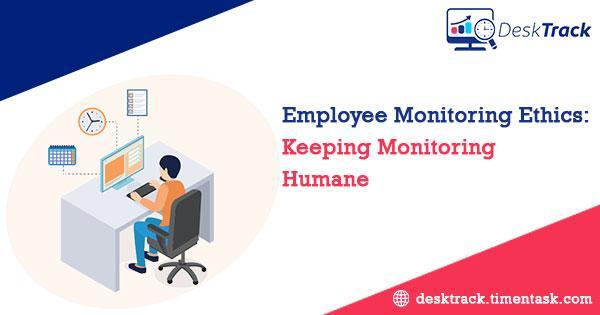Employee monitoring has been prevalent since 1888, when William Le Grand Bundy invented the “Bundy Clock” to track when workers started and ended work. Presently, with the invention of different tools and technologies, managing employee monitoring ethics is a priority.
Workplace monitoring and surveillance requires a balanced approach but most employers find it challenging to keep this balance.
This blog will help you to understand employee monitoring ethics, and the best practices to follow. Also, it elaborates on different employee productivity monitoring software that function ethically and legally.
Why to conduct Employee Monitoring Ethics?
Conducting employee monitoring ethics is essential for building confidence and trustworthiness among employees. Also, it helps organizations to prevent legal cases while monitoring their staff.
Keeping the Balance with the Best Practices
Employers must follow guidelines and employee surveillance laws while monitoring their team members. Here are a few best practices one should consider when monitoring employees using different employee monitoring software:
- Transparency
Employers must keep everything crystal clear! Their employees must be properly explained the what, how and why of their monitoring. Also, monitoring them with their prior concern is a must to prevent any legal issue.
- A Balanced Tracking
Everything done keeping the balance is the best. Similarly, while tracking employees, employers must balance and know the proper limits of where to stop. For instance, employer surveillance of employees must prevent tracking besides work hours or tracking personal data.
- Protected Employee Data
During tracking employees’ data, employers must be careful about not violating any fundamental or human rights. Utmost care must be taken of securing employee data from any theft of inappropriate use.
- Let Employees Access Own Data
Besides protecting employee data, providing them access to where their data is stored will make them secure and confident.
What makes Employee Surveillance at Workplace Ethical?
There is a thin line between conducting employee monitoring ethically and moving towards unethical and inhumane practices. so understanding the gap between the two is required for the employers. To monitor employees ethically, organizations must be aware of:
- Updated Laws of the Land: An ethical employee surveillance policy must comply with the recent amendments of the laws in the country and must ensure that none of their clauses are breaching any law.
- Industry Policies and Rules: Besides, meeting the legal guidelines, it is also essential to follow policies, rules and regulations of the particular industry.
- Prior Consent of the Employees: Lastly, the employers should always be careful to take prior consent from the employees on their tracking. The employees must be always informed about every clause of their monitoring. Tracking them without their consent can be a breach of employee’s privacy policies and can invite legal complications for the employers.
Keeping the above-mentioned points in mind will help the employers in smooth application of the computer monitoring software without any complications.
Workplace Monitoring and Surveillance using Software
Today’s employee monitoring involves different software. An ideal employee productivity monitoring software is the one that conducts monitoring ethically and legally. Desktrack, with multiple employee monitoring features at a single platform helps managers track their employees ethically and in the most convenient way.
Conclusion
Employer surveillance of employees must be performed ethically and within the limitations of the laws. Besides inviting legal complications, unethical employee monitoring also breaches basic human rights.
Employers should balance tracking with transparency and putting certain limits to monitoring. This can be achieved using ideal employee monitoring and tracking software.


